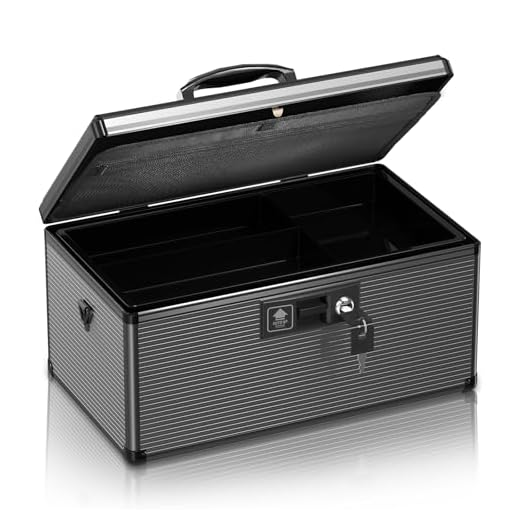



Gabapentin is a medication that is primarily used to treat seizures and certain types of nerve pain. It comes in various forms, including tablets, capsules, and oral suspensions. If you’ve been prescribed the gabapentin suspension and are wondering whether it needs to be refrigerated, you’ve come to the right place.
The storage requirements of medications can vary, and it’s important to follow the instructions provided by your healthcare provider or the manufacturer. Generally, most gabapentin suspensions are required to be refrigerated in order to maintain their potency and effectiveness. The cool temperature helps preserve the chemical stability of the medication and prevents it from degrading.
It’s important to note that not all gabapentin suspensions require refrigeration. Some formulations may be stable at room temperature for a certain period of time. However, it’s always best to err on the side of caution and store the medication in the refrigerator unless otherwise instructed by your healthcare provider.
What is Gabapentin Suspension?
Gabapentin suspension is a medication that belongs to the class of anti-epileptic drugs. It is commonly prescribed to treat seizures in individuals with epilepsy. Gabapentin suspension is also used to relieve nerve pain caused by conditions such as shingles (herpes zoster) or diabetic neuropathy.
Gabapentin works by affecting the chemicals and nerves in the body that are involved in the occurrence of seizures and various types of pain. It is believed to decrease the abnormal electrical activity in the brain that leads to seizures, and it can help alleviate nerve pain by altering the way the body perceives and responds to pain signals.
How is Gabapentin Suspension Taken?
Gabapentin suspension is available as a liquid formulation that is administered orally. It can be taken with or without food, according to the instructions provided by the healthcare professional. The dosage and frequency of administration will depend on the individual’s condition and medical history.
It is important to follow the prescribed dosage and not to exceed the recommended amount of medication. Abruptly stopping the use of gabapentin suspension can result in withdrawal symptoms or an increase in seizures. Therefore, it is crucial to consult a healthcare professional before making any changes to the prescribed dose or treatment plan.
Possible Side Effects of Gabapentin Suspension
Like any medication, gabapentin suspension may cause side effects in some individuals. Commonly reported side effects include drowsiness, dizziness, coordination problems, and unusual eye movements. Other possible side effects may include headache, nausea, and fatigue.
If any severe or persistent side effects occur, it is important to seek medical attention immediately. It is also essential to inform the healthcare professional about any pre-existing medical conditions or medications being taken, as they may interact with gabapentin suspension.
Please note: This article is for informational purposes only and should not replace medical advice provided by a healthcare professional. Always consult your doctor or pharmacist before starting any new medication or treatment plan.
Understanding the Composition
Gabapentin suspension is a medication that is commonly prescribed to treat certain types of seizures and nerve pain. It is available in both oral tablet and liquid suspension forms. The suspension form is especially useful for patients who have difficulty swallowing tablets or who require a smaller dosage.
The composition of gabapentin suspension includes the active ingredient gabapentin, which is an anticonvulsant medication. In addition to gabapentin, the suspension also contains various inactive ingredients that help to stabilize and preserve the medication. These inactive ingredients may vary depending on the brand and formulation of the gabapentin suspension.
Typically, the inactive ingredients in gabapentin suspension may include:
- Purified water
- Xanthan gum
- Sorbitol solution
- Glycerin
- Methylparaben
- Propylparaben
- Saccharin sodium
- Flavorings
These inactive ingredients not only contribute to the suspension’s stability and shelf life, but also help to improve its taste and overall palatability. However, it is important to note that different brands or generic formulations of gabapentin suspension may have slightly different inactive ingredients.
Before taking gabapentin suspension, it is important to read the medication label and consult with a healthcare professional to ensure that it is appropriate for your specific needs and medical condition. This will also help to determine whether the suspension needs to be refrigerated or stored at room temperature.
Proper Storage for Gabapentin Suspension
Gabapentin suspension is a medication commonly used to treat seizures, nerve pain, and restless legs syndrome. Proper storage of gabapentin suspension is crucial to maintaining its effectiveness and ensuring patient safety.
Refrigeration
Gabapentin suspension does not need to be refrigerated. It can be stored at room temperature, preferably below 25°C (77°F), in a dry place away from direct light and moisture. Keeping the medication at a stable temperature helps prevent degradation and maintain its potency.
Protect from Freezing
Gabapentin suspension should be protected from freezing. Freezing can cause the medication to become ineffective and may alter its chemical composition. It is important to store gabapentin suspension in an environment where the temperature does not drop below freezing point.
Keep Out of Reach of Children
Gabapentin suspension should always be kept out of reach of children. The medication should be stored in a secure location, such as a locked cabinet or drawer, to prevent accidental ingestion or misuse.
Proper Disposal
When discarding gabapentin suspension, it is important to follow proper disposal guidelines. Do not simply throw it in the trash or flush it down the toilet. Contact your local pharmacy or healthcare provider for guidance on how to safely dispose of unused or expired medications.
By following these storage guidelines, you can ensure the potency and safety of gabapentin suspension for its intended use. Always consult with your healthcare provider or pharmacist if you have any questions or concerns regarding the storage or use of gabapentin suspension.
Effect of Refrigeration on Gabapentin Suspension
Gabapentin suspension is commonly used as a medication to treat epilepsy and neuropathic pain. It is important to store gabapentin suspension properly to ensure the medication remains effective and safe to use. One question that arises is whether gabapentin suspension needs to be refrigerated.
Refrigeration and Its Effect
Refrigeration refers to the process of keeping something cool or at a lower temperature by storing it in a refrigerator. While refrigeration may be common for many liquid medications, such as antibiotics, it is not necessary for gabapentin suspension.
Gabapentin suspension can be stored at room temperature, away from direct light and moisture. The ideal storage temperature for gabapentin suspension is typically between 15-30°C (59-86°F). Therefore, it is not recommended to refrigerate gabapentin suspension unless directed otherwise by a healthcare professional or the medication’s label instructions.
Storage Tips
Here are some tips to ensure proper storage of gabapentin suspension:
- Store gabapentin suspension in a cool, dry place away from direct light and moisture.
- Keep the medication in its original container with the cap tightly closed.
- Avoid storing gabapentin suspension in the bathroom or kitchen, as these areas may have fluctuating temperatures and high humidity levels.
- Do not freeze gabapentin suspension, as extreme cold temperatures can affect the medication’s stability and potency.
- Keep gabapentin suspension out of reach of children and pets.
- If you have any doubts or questions about the storage of gabapentin suspension, consult your healthcare provider or pharmacist.
Proper storage of gabapentin suspension can help maintain its effectiveness and ensure the medication remains safe to use. It is important to follow the specific storage instructions provided by the manufacturer or healthcare professional to maximize the shelf life and potency of gabapentin suspension.
Alternatives to Refrigeration
If refrigeration is not available, there are several alternatives to store gabapentin suspension:
| Storage Method | Description |
|---|---|
| Cool and dark environment | Store gabapentin suspension in a cool and dark place, away from direct sunlight and heat sources. This can help to maintain the stability of the medication. |
| Room temperature | If stored at room temperature, make sure the temperature does not exceed 25°C (77°F). Keep the medication in a dry place, away from moisture and extreme temperatures. |
| Freezer | In case of prolonged storage without refrigeration, gabapentin suspension can be stored in the freezer. However, it is important to ensure that the medication is sealed properly to prevent moisture and contamination. |
| Insulated bag or container | Using an insulated bag or container can help to maintain a stable temperature for the gabapentin suspension when refrigeration is not available. This can be useful when traveling or during power outages. |
It is important to consult with a healthcare professional or pharmacist for specific storage instructions and guidelines for gabapentin suspension, especially if the medication needs to be stored for an extended period of time without refrigeration.
FAQ
Does Gabapentin Suspension need to be refrigerated?
Yes, it is recommended to store Gabapentin Suspension in the refrigerator. Refrigeration helps maintain the stability and effectiveness of the medication.
What happens if Gabapentin Suspension is not refrigerated?
If Gabapentin Suspension is not refrigerated, its stability and effectiveness may be compromised. The medication may degrade and lose its potency, resulting in reduced therapeutic effects.
Can I take Gabapentin Suspension if it has not been refrigerated?
It is not recommended to take Gabapentin Suspension if it has not been refrigerated, as its effectiveness may be reduced. It is best to follow the storage instructions provided by the manufacturer and store the medication in the refrigerator.







